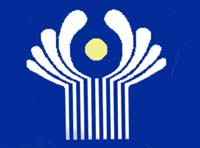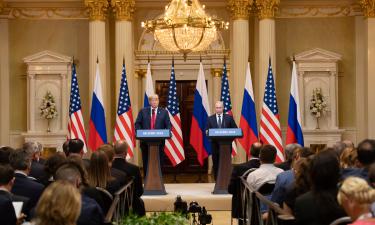Georgian government considering pros and contras of CIS membership keeping

State Minister Georgy Baramidze's comments were the strongest indication to date that the poor Caucasus Mountain nation was moving to cut ties with the CIS, which was formed in the wake of the 1991 Soviet collapse and is increasingly seen as ineffectual. Georgia's departure would symbolically dent Russia's influence in the region.
At a meeting of CIS prime ministers in the Tajik capital, Dushanbe, Baramidze refused to sign any documents and said Georgia saw "no point" in staying in the group, but added that no official decision has been taken yet.
He also told reporters that he had informed the CIS governments at the meeting that Georgian President Mikhail Saakashvili had ordered his Cabinet to start considering whether the membership in the CIS was worth keeping.
He cited Russia's "unfriendly and ungrounded" ban on imports of Georgian wine, mineral water, tea and other products as one of the main reasons for Georgia's reconsideration of CIS membership.
Russia, which also banned wine imports from Moldova, has explained the motivation as a sanitary concern, but the prohibition is widely seen as retaliation for the two former Soviet republics' pro-Western policies.
In recent years, both Georgia and Moldova, as well as Ukraine, have sought closer relations with the West and less influence from Russia. All three have moved to form a new regional bloc called the Organization for Democracy and Development that many suspect is designed to be an alternative to the CIS.
Saakashvili has proclaimed European Union and NATO membership as key goals for his nation, forced Russia to begin pulling military forces out of two Soviet-era bases and criticized Moscow for cultivating close ties with two breakaway regions.
Moscow, meanwhile, has accused Georgia of harboring Chechen separatist rebels and blamed Georgia for exacerbating tensions in the breakaway regions.
Subscribe to Pravda.Ru Telegram channel, Facebook, RSS!





